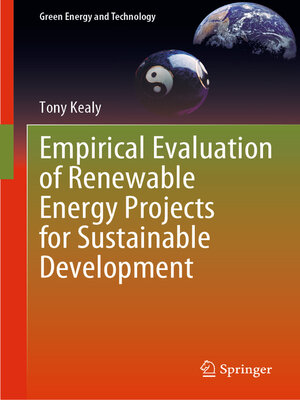Empirical Evaluation of Renewable Energy Projects for Sustainable Development
ebook ∣ Green Energy and Technology
By Tony Kealy

Sign up to save your library
With an OverDrive account, you can save your favorite libraries for at-a-glance information about availability. Find out more about OverDrive accounts.
Find this title in Libby, the library reading app by OverDrive.



Search for a digital library with this title
Title found at these libraries:
| Library Name | Distance |
|---|---|
| Loading... |
This book critically analyses renewable energy sources of electrical power/energy utilised to save money on the amount of electrical energy imported from the national electricity grid and help nations meet binding environmental goals. The main renewable energy sources analysed are wind turbine generators, hydroelectric plant, and solar PV systems. The book presents a robust evaluation framework that can be used in the renewable energy analysis process. One of the main findings is the identification of short-term variations associated mainly with wind turbine electrical generator power output signals. These short-term variations are negating the potential advantages of installing wind turbine electrical generators. One of the suggested methods to counteract the short-term variations is the use of energy storage. Without utility-sized energy storage, binding energy targets will be very difficult to achieve. The three main realms of sustainable development, namely environmental, economic, and human realms, are discussed throughout the book. The three realms are closely interlinked so a weakness identified in any one realm affects the overall sustainability of the (business, country, any organisation) development process.







